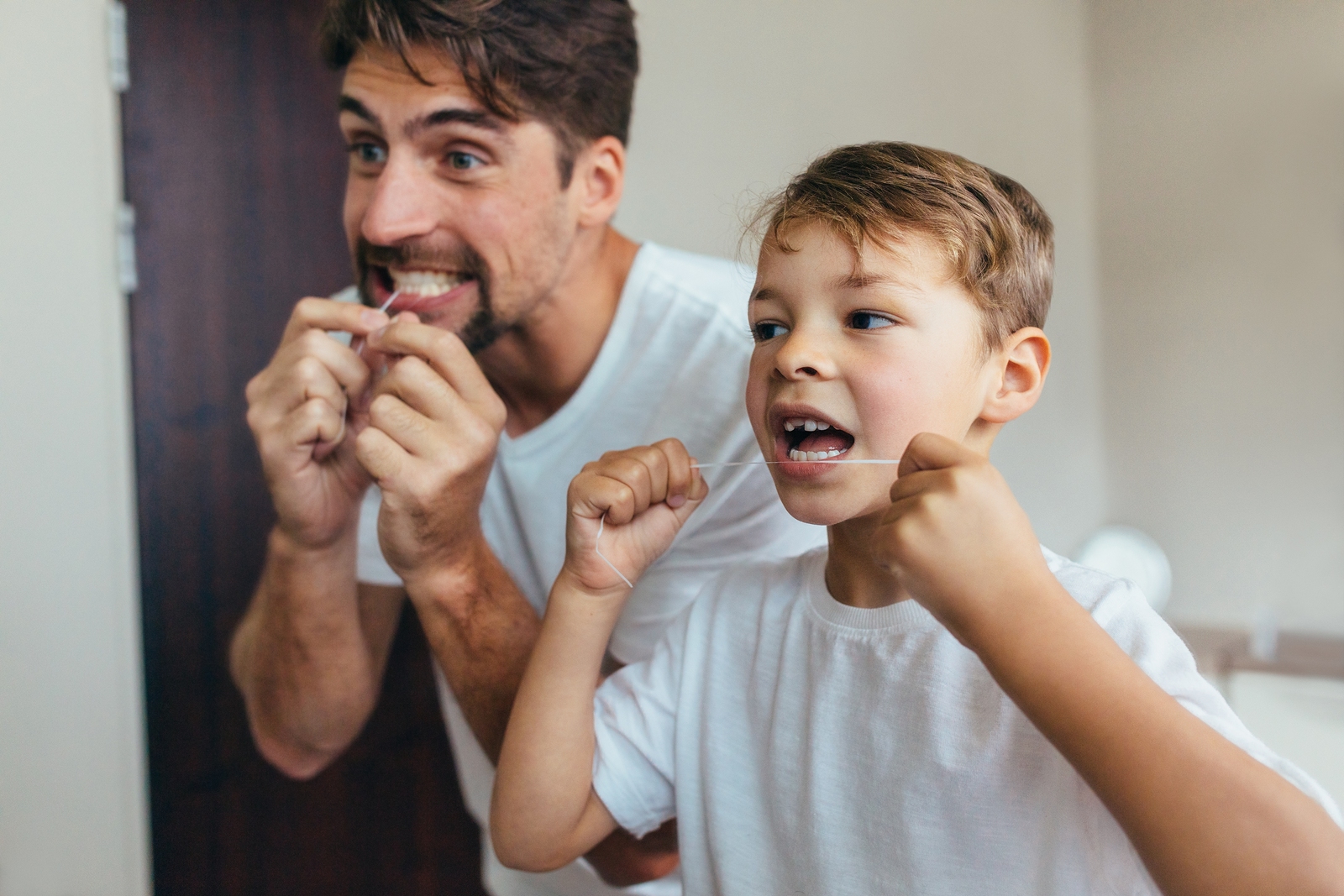
Forming life-long good oral hygiene habits are important to keep your child’s teeth healthy for life.
Whether your child has just gotten their first tooth or if they are approaching adulthood, we have some handy hints to make cleaning teeth easier, effective and fun.
The First Tooth:
It is important to start cleaning your children’s teeth as soon as they erupt (about 6-9 months old). This can be done without toothpaste with a clean soft cloth, small soft children’s toothbrush or a finger brush. If your child experiences discomfort when teething, try teething toys that can be placed in the fridge (not freezer) to help soothe the area.
When to use a children’s toothpaste:
Before introducing your child to a children’s toothpastes, teach them how to spit after brushing so they learn not to swallow toothpaste. The Australian guidelines recommend to start using a children’s toothpaste at 18 months old.
Toddlers:
It can be quite challenging cleaning your toddler’s teeth as they start to gain independence. One helpful tip is to brush together. We recommend holding a toothbrush each and taking turns so they feel involved in cleaning their own teeth. Using a distraction technique by counting or singing can help improve cooperation and make brushing easier (and fun). By 2-3 years old your child will have all of their primary teeth (baby teeth). It is highly recommended for your son or daughter to have a dental check-up before 3 years old to try and prevent dental decay in their primary teeth.
6 years old:
Six years old is an exciting age because some of the primary teeth begin to get wobbly and the permanent teeth (adult teeth) start to erupt. The lower front teeth are usually the first ones to get wobbly. At 6 years old the 6 year old molars erupt right at the back, so brushing these new teeth is especially important to prevent decay. At 6 years old we recommend to start using an adult’s strength toothpaste with supervision and for them to still have assistance with brushing. Regular 6 monthly check up and cleans are important to help your child learn good preventive habits and to try and prevent decay in the permanent and primary teeth.
6 -12 years old:
From 6-12 years old your child will have ‘mixed dentition’ this means a mixture of adult teeth and baby teeth. At around 8 years old your child will have the dexterity to start cleaning their teeth on their own but supervision and a ‘reminder’ to brush is recommended. Regular dental appointments are not only recommended to prevent decay, but it is very important for us to assess if the adult teeth are erupting when they should. This can prevent problems with crowding and extensive orthodontic treatment in the future.
Teens to Adulthood:
Many changes occur as an adolescent including starting high-school, a first part time job and a busier lifestyle. With these changes we want to ensure that excellent oral care is still maintained and will offer encouragement to your son/daughter to improve their oral health as required. Hormonal changes can increase the risk for gingivitis so regular check-ups and cleans are important to keep the gingiva (gums) healthy, to reduce the risk of decay and to assess if orthodontic treatment (braces) are required.

Leave a Reply